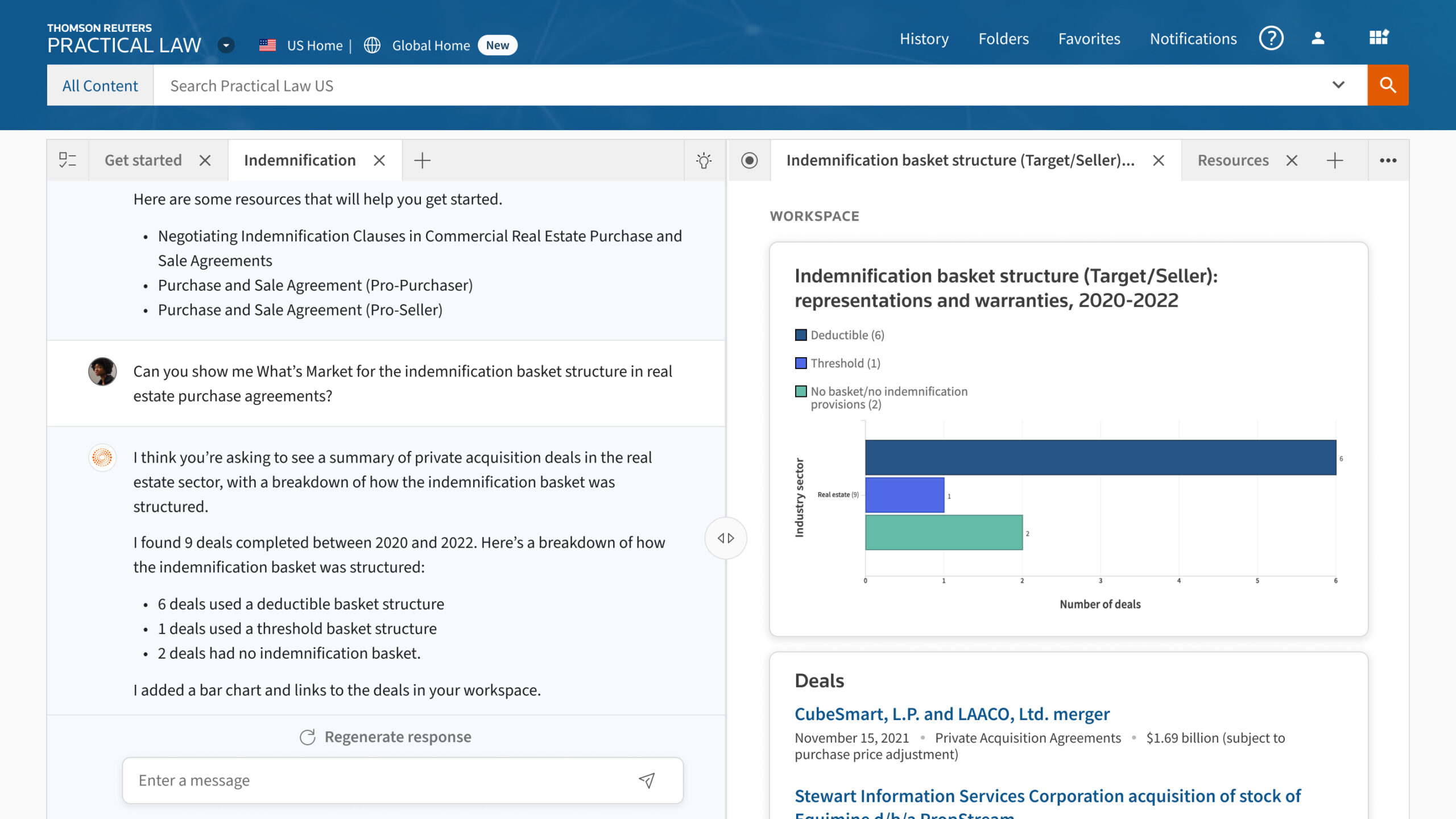Generative AI Product Preview: Practical Law

Thomson Reuters is incorporating generative AI capabilities enterprise-wide to provide customers with a more conversational experience, intuitive automation, time savings and a significantly improved user experience. Integrating this new technology will transform Thomson Reuters solutions and enable customers to get their work done faster.
Thomson Reuters is prioritizing its legal product suite, including Westlaw Precision, Practical Law and Drafting tools, and Legal Current is sharing sneak peeks of what’s to come. Today we highlight how generative AI will give Practical Law users faster access to the expertise of more than 650 attorney editors.
Practical Law
Integrating generative AI into Practical Law is the latest in a series of Thomson Reuters product advances to improve search and infuse guidance into the customer workflow. A recent example was the 2021 launch of Practical Law Dynamic Tool Set, which included an AI-driven question-answering feature to leverage the expertise of attorney editors to answer legal research questions.
The ongoing enhancements are part of the company’s long history of leveraging AI to develop industry-leading research and workflow solutions, as Chief Product Officer Emily Colbert, noted in a media briefing.
Emily Colbert, head of Product Management, Know How and Compliance, said Practical Law is focusing on using AI capabilities to help legal professionals get to trusted answers and produce high quality work product faster.
“Incorporating generative AI is not really that different from how and why we have created products over the years,” Colbert said. “By providing our customers a way to verify and trust the results of the AI, we are also helping them to adopt these new tools in a way that is comfortable.”
Generative AI capabilities in Practical Law will allow users to submit questions to Practical Law, receive an answer, and then follow up with additional questions or prompts using conversational language in a chat-type interface. Practical Law users can still find up-to-date guidance on an area of law, get annotated model documents and clauses, analyze trends, and compare jurisdictional differences.
The generative AI integration will enable Practical Law users to chat with Practical Law in the same way they would talk with a colleague to better understand the law and practice. Also, it will allow users to take the answer they receive a step further by leveraging Thomson Reuters drafting solutions to initiate a draft document using Practical Law precedents, clauses, and drafting guidance.
The integration will be released in beta later this year. It will leverage the industry-leading content that’s created and maintained by the more than 650 Practical Law attorney editors, who serve as a trusted resource for legal know-how and practical guidance.
June 13 Webinars and Additional Insight
Legal professionals and law firms can register for a free webinar on June 13 at noon Central time for a sneak peek of the generative AI capabilities in Practical Law. Paul Fischer, president of Legal Professionals, will be joined by Mike Dahn, head of Westlaw Product Management; Emily Colbert, head of Product Management, Know How and Compliance; Joel Hron, vice president of Technology; and Rawia Ashraf, vice president of Product Management. They’ll share product demos to highlight how Thomson Reuters is shaping the future of work in the legal profession.
Also, a free webinar for corporates and legal in-house teams will be held June 13 at 10 a.m. Central time. Laura Clayton McDonnell, president of Corporates, will be joined by the product leaders listed above. They will share product demos to show how Thomson Reuters is redefining the way corporate in-house legal professionals work.
Watch this demo to see generative AI in action in Practical Law. (Scroll to the bottom of the page to play the video.)
Finally, visit TR.com/AI for more on efforts to incorporate generative AI, including how Thomson Reuters is developing a new plugin with Microsoft 365 Copilot.